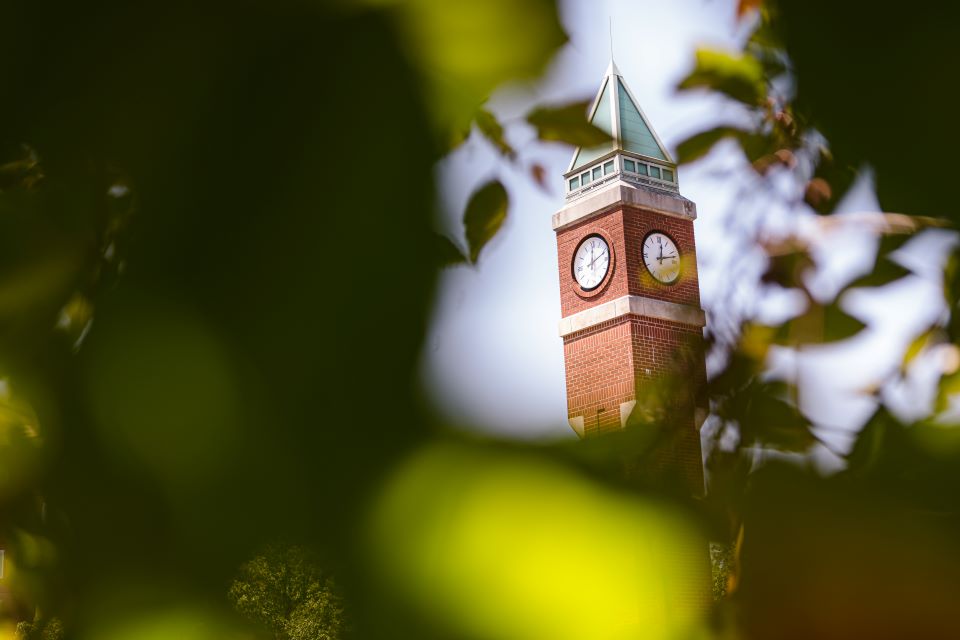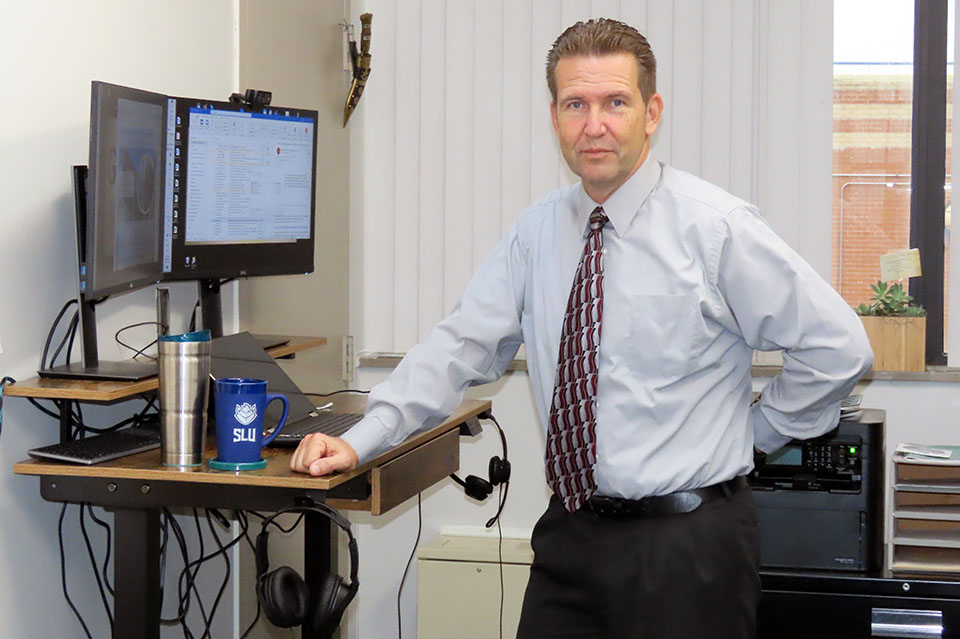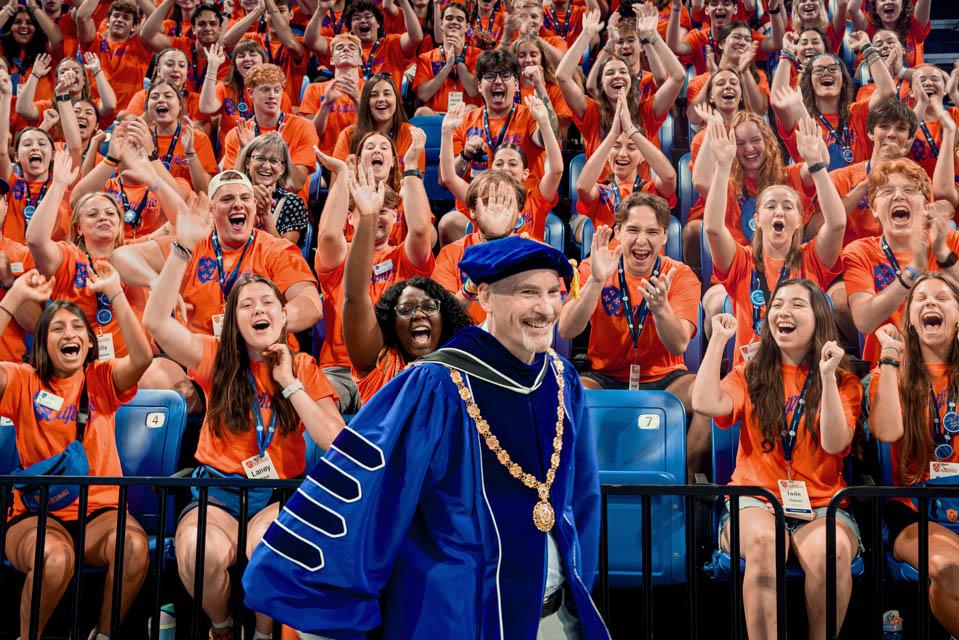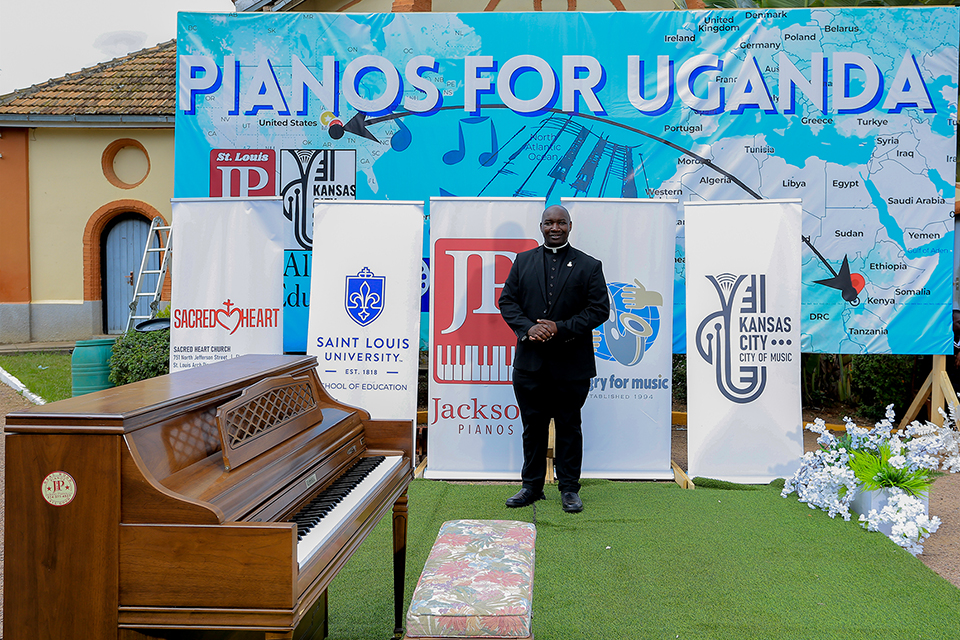Majority of Missouri Voters Want to Say Goodbye to Switching Their Clocks
The SLU/YouGov Poll Finds Missouri Voters prefer Daylight Saving Time over Standard Time
Spring forward? Fall back? Most Missourians say it’s time to stop changing clocks twice a year.
Missourians will “spring forward” with the start of Daylight Saving Time this weekend.

The SLU/YouGov poll found that a vast majority of Missouri voters prefer a consistent time throughout the year. Photo by Sarah Conroy.
In February 2024, the SLU/YouGov Poll asked 900 likely Missouri voters their preferences on Daylight Saving Time. The poll found that a vast majority of Missouri voters prefer a consistent time throughout the year. Forty-seven percent of voters say they would prefer to see Daylight Saving Time all year round, compared to 31% indicating they would prefer Standard Time all year round. Meanwhile, only 16% of Missouri voters say their preference is to continue to switch back and forth between the two as most of the United States does now.
Most of the United States observes Standard Time from the first Sunday in November until the second Sunday in March. Daylight Saving Time is observed in the other half of the year when our clocks move forward one hour. During Daylight Saving Time, the sun sets an hour later than during Standard Time, creating more daylight in the evening but less in the morning.
“Stopping changing our clocks twice a year has overwhelming bi-partisan support,” said Steven Rogers, Ph.D., SLU/YouGov Poll Director and associate professor of political science at Saint Louis University. “At least 74% of each Democratic, Republican, and independent voters prefer to end the practice springing forward or falling back.”
The SLU/YouGov Poll found the most support to follow Daylight Savings Time permanently, particularly in the southern regions of the state where half of voters say they prefer Daylight Saving Time year-round.
Poll results and cross tabs available here.
Impacts of Daylight Savings Time
Studies show that Daylight Saving Time lowers energy bills, increases safety, stimulates the economy and promotes more active lifestyles. On the other hand, Daylight Saving Time is associated with increased health risks from cardiac disease and cognitive disorders. During Standard Time, the timing of the sunrise and sunset allow people to sleep better at night and feel more alert during the day because the time and body clocks are more aligned.
History of Daylight Savings Time
Moving clocks an hour forward in the spring and gaining an extra hour of evening light was first practiced in the United States during the World Wars to save energy, then called “War Time.” After World War II, some cities continued observing War Time while others switched back. The lack of consistency prompted The Uniform Time Act of 1966, which mandated that clocks changed twice annually between Standard Time and Daylight Saving Time. States either adopted the system or opted out entirely.
Since 2007, Americans’ clocks have fallen back in November and spring forward in March.
All states except Arizona and Hawaii currently participate in Daylight Saving Time.
Methodology and Funding
YouGov interviewed 900 likely Missouri voters between February 14 to February 26, 2024. The YouGov panel, a proprietary opt-in survey panel, is comprised of 3.1 million United States residents who have agreed to participate in YouGov Web surveys. Using their gender, age, race, and education, YouGov weighted the set of survey respondents to known characteristics of Missouri voters from the American Community Survey (ACS) public use microdata file, public voter file records, the 2020 Current Population Survey (CPS) Voting and Registration supplements, the 2020 National Election Pool (NEP) exit poll, and the 2020 CES surveys, including demographics and 2020 presidential vote. The margin of error for the weighted data is 3.74%.
The February 2024 SLU/YouGov Poll was funded by the PRiME Center in SLU’s School of Education.
About YouGov
Saint Louis University has partnered with YouGov to conduct its annual survey of Missouri voters. YouGov conducts surveys for multiple academic institutions and is the primary, trusted survey firm for media organizations, including CBS News and The Economist. An independent Pew Research Center study of online survey firms in 2016 further concluded that YouGov “consistently outperforms competitors.”
About Saint Louis University
Founded in 1818, Saint Louis University is one of the nation’s oldest and most prestigious Catholic institutions. Rooted in Jesuit values and its pioneering history as the first university west of the Mississippi River, SLU offers more than 15,200 students a rigorous, transformative education of the whole person. At the core of the University’s diverse community of scholars is SLU’s service-focused mission, which challenges and prepares students to make the world a better, more just place.
Latest Newslink
- SLU to Host Pope Leo Series on AI and the Social Teaching of the ChurchSaint Louis University is launching a year-long series on AI and the social teaching of the Catholic Church. The Pope Leo Series on AI and the Social Teachings of the Church is hosted by SLU’s Catholic Studies Center and will feature a monthly panel on AI and a different facet of social teaching. Panels will include a mix of academic experts.
- Demchenko Named American Chemical Society FellowAlexei Demchenko, Ph.D., chemistry department chair, has been named an American Chemical Society Fellow for 2025. ACS fellows are members of the society who have "shown outstanding achievements in and contributions to science, the chemistry profession, and the society." This year, 36 members were named.
- James H. Korn, Ph.D.: 1938-2025James H. Korn, Ph.D., emeritus professor of psychology, died July 17, 2025. He was 87. Korn was a long-time professor at SLU. In 2006, the University established the James H. Korn Scholarship of Teaching and Learning Award in recognition of his many contributions to the research on teaching and learning.
- New Full-Time Faculty Members Join Saint Louis UniversitySaint Louis University has many new full-time faculty members joining the University this year. Check out the list of who is new at SLU.
- SLU Welcomes Home Newest Billikens at ConvocationThe newest Billikens, including new President Edward Feser, Ph.D., took part in the New Student Convocation and Family Welcome on Saturday morning inside Chaifetz Arena. The ceremony is designed to be one of the first opportunities for the new class of Billikens to develop a sense of cohesion and identity. Members of the SLU community shared how they serve a higher purpose and seek the greater good.
- SLU Doctoral Student Connects Ugandan Students With Pianos, Other Musical InstrumentsFr. Thomas Sserwadda, a doctoral student studying higher education administration at Saint Louis University, sent musical instruments to the Bukalasa Minor Seminary in Masaka Diocese, Uganda.













